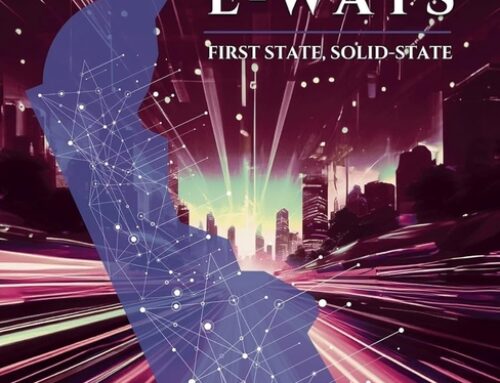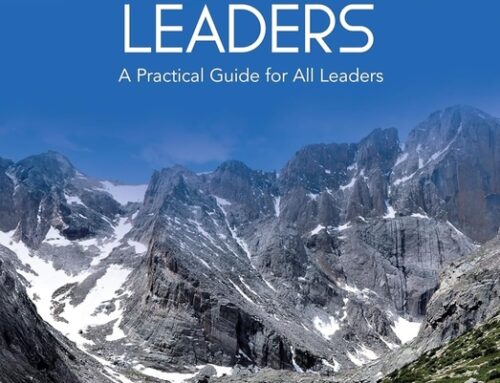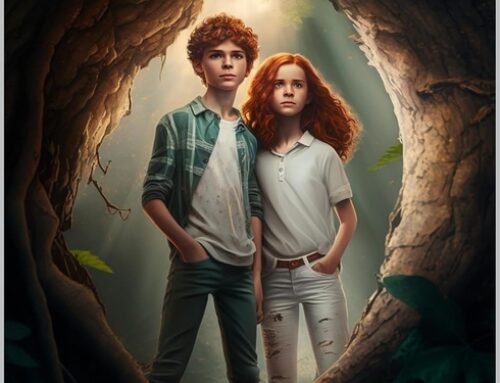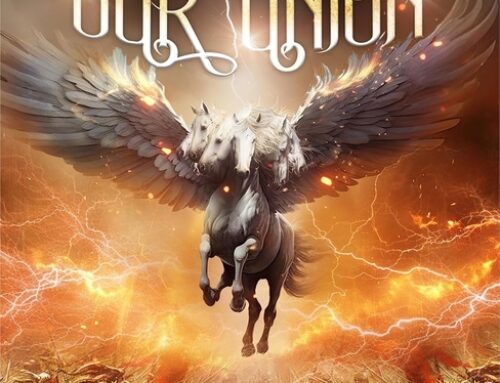Paypal hasn’t had a great few months of PR. First there was the Regretsy debacle, in which Paypal refused to process donations for kids:
PayPal demanded that Regretsy, an Etsy parody site, return its recent donations garnered to provide Christmas presents for disadvantaged kids. Though Regretsy functions primarily as a humor blog that mocks unfortunate-looking items on the craft site Etsy, it also allows Etsy sellers to donate their products to charity — and even to other sellers in need.
After the internet outcry, they reversed this decision, and finally decided to make donations of their own.
Now Paypal is restricting content on Smashwords – albeit not one that is as easy to support as charity for children. They informed Smashwords that they will no longer process transactions for certain books. Mark Coker writes:
About two weeks ago, PayPal contacted Smashwords and gave us a surprise ultimatum: Remove all titles containing bestiality, rape or incest, otherwise they threatened to deactivate our PayPal account. We engaged them in discussions and on Monday they gave us a temporary reprieve as we continue to work in good faith to find a suitable solution.
PayPal tells us that their crackdown is necessary so that they can remain in compliance with the requirements of the banks and credit card associations (likely Visa, MasterCard, Discover, American Express, though they didn’t mention them by name).
Do credit card companies restrict payments for other non-illegal purchases? If not, how is this situation different? If this is true, this is bigger than just Paypal censoring Smashwords – it’s a collusion of credit card giants censoring the web. It seems a bit like Paypal might be using other credit card companies as a scapegoat, especially when coupled together with the Regretsy issue. Paypal has some hard-line policies.
There have already been complaints on this site from a user about Smashwords porn issue – Smashwords As Dirty Book Store. Since then, the adult filter is on by default, as should be the case – like a video store (back when those existed) that had a separate section for xxx titles.
While Paypal’s move is technically censorship, it cannot be put on the same level as government censorship. It’s well within Paypal’s right to restrict payment processing in this way. They are a private company – i.e. they don’t have to abide by the first amendment. The problem is that Paypal has a virtual monopoly on payment processing (this site uses it, for a full disclaimer), so in a way that makes them more like a government. They have a huge amount of power over the nation-state of the web. So this decision could have sweeping implications.
My first reaction to this was: Oh no, censorship. But also: well, I can see their point. Perhaps I’ve gotten conservative in my old age, but I do not entirely think free expression is always healthy or necessary. A book of erotica that is about the rape and murder of kids is plainly disgusting. And there is a vast, easy-to-differentiate difference between this and Lolita. I’ve never personally bought into the slippery slope argument with porn vs. other works of art. It’s plainly obvious when something is porn and when something isn’t. I’m not advocating censoring porn but just saying: c’mon, porn is obvious. Censoring certain content will not necessarily mean this will find its way into restricting other content. It could, however, and that “could” is important enough that fighting for free speech is vital, no matter how odious that speech. The Electronic Frontier Foundation says:
Frankly, we don’t think that PayPal should be using its influence to make moral judgments about what ebooks are appropriate for Smashwords readers. As Wendy Kaminer wrote in a forward to Nadine Strossen’s Defending Pornography: “Speech shouldn’t have to justify itself as nice, socially constructive, or inoffensive in order to be protected. Civil liberty is shaped, in part, by the belief that free expression has normative or inherent value, which means that you have a right to speak regardless of the merits of what you say.”

Photo by Emerson Stepp/SeaSteading / Rex Features (1421267g)
Read that phrase, “Civil liberty” again. What’s strange about this is that Paypal’s founder, Peter Thiel, is a staunch libertarian. This is how his floating city/utopia is explained (emphasis added):
PayPal-founder Peter Thiel was so inspired by Atlas Shrugged – Ayn Rand’s novel about free-market capitalism – that he’s trying to make its title a reality.
The Silicon Valley billionaire has funnelled $1.25million to the Seasteading Institute, an organisation that aspires to launch a floating colony into international waters, freeing them and like-minded thinkers to live by libertarian ideals.
Mr Thiel recently told Details magazine: ‘The United States Constitution had things you could do at the beginning that you couldn’t do later. So the question is, can you go back to the beginning of things? How do you start over?’
The floating sovereign nations that Mr Thiel imagines would be built on oil-rig-like platforms anchored in areas free of regulation, laws, and moral conventions.
Aren’t Paypal’s moves a way to regulate moral conventions? The fact that he’s invested in projects like this suggests that more-sweeping censorship by Paypal might not be out of the question. He’s a proponent of some fairly-extreme ideas.
Perhaps this will come to a clean conclusion – Smashwords will find another method of payment processing for certain content, so at least Smashwords itself doesn’t have to censor anything. Or Paypal backs off. But this certainly calls into question the problem with the web and monopolies. Though there are other payment sources, Paypal’s the biggest one going – meaning more people have an account to make a purchase – so it’s sometimes the only choice. This calls to mind the Kindle as well. Right now, the Kindle is great. But picture a dystopia for a second: Kindle’s cornered the market on ebooks – it’s the only place where you can expect to sell books. Someone less forward-thinking than Jeff Bezos takes the helm. Amazon has already censored books in the past, this could become a more-common problem. Amazon is on record as saying this:
Amazon believes it is censorship not to sell certain books simply because we or others believe their message is objectionable. Amazon does not support or promote hatred or criminal acts, however, we do support the right of every individual to make their own purchasing decisions.
This is a good policy, but once they hold all the cards, they are free to do whatever they want, as Paypal also now wields that power. The Smashwords/Paypal issue is another example of what could become a growing problem.
In general, the freedom to publish doesn’t necessarily mean the freedom to publish anything you want. Restrictions on copyright infringement, libelous material, posting someone’s ATM pin, and so on, are all censorship of a certain kind. This is different because it’s fiction – which doesn’t literally harm anybody, so the restrictions do seem overboard. Even porn involves real people – whereas this just involves words on paper. So while it’s understandable if Paypal finds distasteful things distasteful, nanny-statism is really not the answer.
This problem will only continue to grow as self-publishing grows – which isn’t an argument for stopping certain content from being published. In the coming years, there will be more great books self-published, and more terrible, terrible books. That’s how self-publishing works. Both need to be allowed to flourish or else it will just be another case of the gatekeepers finding another way to lock the gate.
Update:
Paypal weighs in:
Here are the facts. Unlike many other online payment providers, PayPal does allow its service to be used for the sale of erotic books. PayPal is a strong and consistent supporter of openness on the Internet, freedom of expression, independent publishing and eBook marketplaces. We believe that the Internet empowers authors in a way that is positive and points to an even brighter future for writers, artists and creators the world over, but we draw the line at certain adult content that is extreme or potentially illegal.
An important factor in our decision not to allow our payments service to be used to purchase material focused on rape, incest or bestiality is that this category of eBooks often includes images.
This type of content also sometimes intentionally blurs the line between fiction and non-fiction. Both these factors are problematic from a legal and risk perspective.
So the business risk associated with this content forms the basis for our policy, which has been in place for many years. Some feedback we’re getting is a belief that PayPal is forcing its moral beliefs on others and restricting people’s right to free speech. We can tell you with 100 percent conviction that this is not our intention. While we understand that people don’t always agree with our policies, this decision has nothing to do with our personal views on the content or any desire to limit free-speech rights. It has everything to do with running a sound business and complying with our legal responsibilities.
I’m not getting the concept of “potentially illegal.” There is plenty of fiction with illegal behavior – serial killing, drug use, etc. So how is the line blurred with fiction and non-fiction in erotica? If I might fill in the blank – readers of crime fiction might not be looking for an instruction manual on serial killing, but people might have a different impulse who read sex-related fiction. Maybe. And I can’t imagine there’s a lot of fiction on Smashwords that includes images of bestiality, which are illegal. I could be wrong about that – but that’s a pretty serious accusation. Whatever the case that line, “intentionally blurs the line between fiction and non-fiction,” needs a lot more explanation from Paypal.
Update 2: Aaaaaand it’s over. Good on Paypal (emphasis added):
First and foremost, we are going to focus this policy only on e-books that contain potentially illegal images, not e-books that are limited to just text. The policy will prohibit use of PayPal for the sale of e-books that contain child pornography, or e-books with text and obscene images of rape, bestiality or incest (as defined by the U.S. legal standard for obscenity: material that appeals to the prurient interest, depicts sexual conduct in a patently offensive way, and lacks serious literary, artistic, political or scientific value).
In addition, the policy will be focused on individual books, not on entire “classes” of books. Instead of demanding that e-book publishers remove all books in a category, we will provide notice to the seller of the specific e-books, if any, that we believe violate our policy.
Get an Editorial Review | Get Amazon Sales & Reviews | Get Edited | Get Beta Readers | Enter the SPR Book Awards | Other Marketing Services























If Free Speech is to remain a right, it has to be defended vigorously. Your heart’s in the right place, but your response is weak. Why do you feel like you have to start by covering yourself because the topic involves porn? “It’s plainly obvious when something is porn and when something isn’t,” is BS. You know full well that there are people out there who see “Lolita” as porn, to use your example.
That’s why I say that this still needs to be defended. Just offering my opinion that porn is obvious – which, honestly, it is. But I do understand Mark Coker’s initial reaction of following Paypal’s demands. To lose the entire payment structure because of beastiality porn would be a shame. It’s also a shame that there are book burners in our culture. It’s possible to agree with both points.
Good article, Henry. The Thiel contradiction (censorship vs libertarianism) is an interesting point that requires further investigation. I’d like to know his thoughts on the matter.
Rape and sex with children are crucial issues that need to be discussed in any civilized society. I, like Henry, though, find rape and sex with children, when used to titillate, totally disgusting, and I don’t personally care what penalties their purveyors have to pay. But the problem with censorship, by the state or by those in a monopolistic position, like Paypal, to impose it, is that the censors can’t be counted upon to clearly distinguish between serious discussion and titillation. I’d say “Lolita” was the former. I can imagine, though, others might seriously argue it was the latter. I therefore vote against censorship of any kind regarding these matters. The mere existence of writings glorifying rape and sex with children doesn’t require anybody to buy or read them. They can simply lie in the gutter where they belong, waiting for the next rain to sweep them into the sewer unseen and unsung. And if being swept into nothingness isn’t what happens to them — they instead, say, return a profit to those who sell them — that tells us our society needs a lot more serious discussion of those matters. Where will that come except from those who are willing to approach the line that separates good from evil?